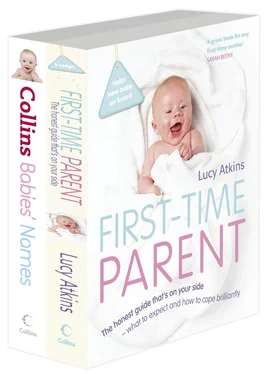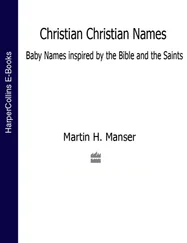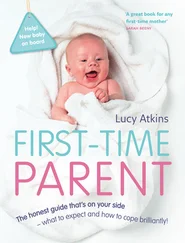Ashley f. and m.
A place and surname meaning ‘ash field’ which has become very popular throughout the English-speaking world. The spelling Ashleigh is rather more common for girls, and the variant Ashlyn(n) is used as a girl’s name in the USA. The related surname Ashton, meaning ‘ash farm’, is also found as a first name for both sexes in the USA.
Ashling see Aisling
Ashraf m.
A popular Muslim name, from the Arabic for ‘more noble’ or ‘more honourable’.
Asia see Aisha
Aslam m.
A Muslim name, from the Arabic meaning ‘safer’ or ‘sounder’.
Asma f.
A popular Muslim name, from the Arabic for ‘more eminent’ or ‘more prestigious’. Asma was the daughter of the caliph Abu-Bakr. She courageously helped the Prophet and her father escape from Mecca when their lives were threatened.
Assisi f.
Assisi (sometimes Asisi), is, like Florence and Sienna, an Italian town famous for its Renaissance art. It was given publicity when chosen by Jade Jagger for her daughter.
Astrid f.
From the Old German words meaning ‘god’ and ‘beauty’. The name of the wife of St Olaf of Norway, it has long been popular in Scandinavia, and has been used in Britain in the 20th century.
Athene f.
This is the name of the Greek goddess of war, crafts and wisdom. In Britain, it has been used occasionally as a girl’s name, as has the Latin form of the name, Athena. The Roman equivalent, Minerva, is also found.
Athol f. and m.
Athol or Atholl is the Scottish place name, used as a first name. The place name means ‘New Ireland’.
Aubrey m. and f.
From the Old German meaning ‘elf ruler’. In medieval romance the diminutive Auberon was used and Shakespeare adopted it as Oberon in A Midsummer Night’s Dream. The German form, Alberic, developed first into Albery and later into Aubrey. Aubrey is now to be found as a girl’s name in the USA.
Audrey f.
A shortened form of Etheldreda, Old English for ‘noble strength’ and one of the sources of ETHEL. St Etheldreda was a 7th-century Anglo-Saxon princess who founded at Ely a religious house which later developed into the cathedral that now stands on the site. She was a popular saint and many churches are still dedicated to her.
Augusta f., Augustus m.
From the Latin for ‘venerable’. Augustus was a title given to the first Roman Emperor and Augusta is its feminine form. Augustine, the name of two important saints, one of whom converted the English to Christianity, is another form of the name. It was so popular in the Middle Ages it developed the shorter forms Austin, Austyn and Austen, a name which has been popular in the USA for some years. Augustina is a feminine form of Augustine. Gus and Gussie are pet forms.
Aurelia f.
From the Latin aurelius meaning ‘golden’. It has been used since the 17th century, and recently a short form, Auriol, Auriel, Oriel or Oriole, has shown some popularity. The boy’s form is Aurelius.
Aurora see Dawn
Austen, Austin, Austyn see Augusta
Autumn f.
This season is fashionable in the USA, although Summer is preferred in the UK. Spring is also found.
Ava f.
This name is of obscure origin, but probably started life as a pet form of names beginning Av-. It was made famous by the film star Ava Gardner, and is more commonly found in the USA than Britain, and has recently been the choice of a number of American celebrities for their daughters.
Aveline see Evelyn
Averil f. and m.
Probably from the Old English eofor (‘boar’) and hild (‘battle’), which appears as Everild and Everilda in the 7th century. It was regularly in use until the 17th century, since when it has been less common. Averil is often confused with AVRIL which originally was an entirely different name.
Avery see Alfred
Avril f.
The French for April. The name has been popular in the 20th century, mainly for girls born in that month (see also AVERIL).
Ayesha, Ayisha see Aisha
Aylmer see Elmer
Aylwin see Alvin
Aysha, Ayshia see Aisha
Azim m., Azima(h) f.
This Arabic name means ‘determined’.
Aziz m.
This Arabic name means ‘friend’. Azeez is a common alternative spelling, and Aziza or Azeeza are feminine forms.
Bab, Babs see Barbara
Babette see Barbara, Elizabeth
Bailey f. and m.
This surname, which comes from the job of steward or bailiff of an estate, has recently been fashionable as a girl’s name in the USA.
Bairre see Barry
Bala f. and m.
An Indian name, from the Sanskrit for ‘young child’. The boy’s form can also appear as Balu and Balan.
Barbara f.
From the Greek barbaros, meaning ‘strange’ or ‘foreign’, and associated with St Barbara, a 3rd-century martyr. The name was little used after the Reformation, but in the 20th century it became popular again. Abbreviations include Bab, Babs, Barbie and sometimes Bobbi. The variant form Barbra was publicised by the singer Barbra Streisand. Babette is a French form of the name.
Barnabas m.
From the Hebrew meaning ‘son of exhortation or consolation’, it is best known as the name of the New Testament companion of St Paul. The diminutive, Barnaby, is rather fashionable at the moment, more so than the full form. Barney is a short form which is also shared with BERNARD.
Barney see Barnabas, Bernard
Barry m.
The English form of a variety of Celtic names, most prominently Bairre, a pet form of the Irish Finbarr (Finnbar, Fionnbharr) meaning ‘fair-haired’. Barry can also be spelt Barrie, the usual spelling in the name’s infrequent use for girls.
Bartholomew m.
From the Hebrew, meaning ‘son of Talmai’, Talmai meaning ‘full of furrows’. It was the surname of the Apostle NATHANIEL and was very popular in the Middle Ages when the cult of St Bartholomew was at its height. St Bartholomew’s Hospital in London was founded in the 12th century, and a riotous annual Bartholomew Fair held in the city to provide funds for it, was suppressed only in the 19th century. The name is still in use, and has short forms Bart, made famous by the cartoon character Bart Simpson, and Barty.
Basil m.
From the Greek basileios, meaning ‘kingly’. It was probably brought to England by the Crusaders, and it has remained in use ever since. Diminutives include Bas or Baz, Basie and Bazza, and there are two feminine forms, Basilia and Basilie. These were common in the Middle Ages, but are hardly ever found today.
Bastian, Bastien see Sebastian
Bathsheba f.
This name derives from Hebrew words which mean ‘daughter of opulence’. In the Old Testament Bathsheba was the beautiful wife of Uriah and was seduced by King David who arranged to have Uriah die during a battle. Bathsheba married David and became the mother of Solomon. The name was formerly used in Cornwall in the form Bersaba, and appears also in its pet form Sheba. Bathsheba Everdene is a central character in Thomas Hardy’s Far From the Madding Crowd.
Baz, Bazza see Basil
Beatrice f.
From the Latin Beatrix, meaning ‘bringer of happiness’. It has strong literary associations. Dante’s Beatrice is probably best known, but Shakespeare also used the name in Much Ado About Nothing. Recently, both forms of the name have shown signs of returning to popularity, no doubt helped by the publicity given to it as the name of one of the Duke and Duchess of York’s daughters. Short forms include Bea or Bee, Beata, Beatty, Triss and Trixie. There is also a Welsh variant, Bettrys, and a Spanish form Beatriz.
Becky see Rebecca
Bel see Annabel, Arabella, Belinda, Isabel
Belinda f.
From an Old German name, the latter part of which means ‘a snake’ (see LINDA). The first part of the name is obscure, but is commonly thought of as representing the French ‘fair’. Its popular use began in the 18th century when it was used in plays by Congreve and Vanbrugh, and in Pope’s poem The Rape of the Lock. Short forms include Bel and all forms of LINDA.
Читать дальше












